Top Financial Books to Read in 2025 to Transform Your Money Management Skills
10 Financial Books 2025 That'll Level Up Your Money Goals
If “get my finances together” is on your list of 2025 goals, you’re not alone. The good news? There’s no shortage of brilliant financial books to guide you in 2025 that can help you figure out a strategy that actually works for you. And we’re not talking about dry, dusty tomes written for people with hedge funds and accountants on speed dial. We’re talking about relatable, easy-to-digest reads that meet you exactly where you are—renting an apartment, juggling bills, and trying to make smart financial decisions for your future.
If you’re searching for the best financial books, our recommendations highlight the top picks for 2025 to help you make informed choices.
We pulled together a list of 10 books that offer totally different approaches to saving, investing, spending, and just generally thinking smarter about money management. These books cover all the things—from budgeting basics to advanced investing strategies—so you can find advice that fits your unique situation. Whether you’re into automation, minimalism, or just want someone to explain how credit actually works through credit bureaus, there’s something here that can move you toward your financial goals this year and beyond.
Bonus: We’ve included Amazon links so you can add to cart and start reading ASAP.
Introduction to Personal Finance
Personal finance is at the heart of living a secure and fulfilling life. It’s more than just crunching numbers or tracking every penny—it’s about making smart money management choices that help you achieve your financial goals, both big and small. Whether you’re saving for your first apartment, planning for retirement, or just trying to keep up with monthly expenses, understanding the basics of personal finance can make all the difference.
At its core, personal finance is about creating a budget that works for your lifestyle, managing debt so it doesn’t manage you, and building an emergency fund to handle life’s surprises. It’s also about making informed financial decisions—like when to start investing, how to save for retirement, and how to balance spending with saving. By developing a strategy that fits your needs, you can reduce risks, avoid costly mistakes, and set yourself up to achieve your long-term financial goals.
No matter where you are on your financial journey, taking the time to learn about budgeting, saving, investing, and managing debt will help you make sense of your money and create a plan for the future. With the right approach, you can build a strong foundation, gain confidence in your financial decisions, and enjoy the peace of mind that comes from knowing you’re in control of your finances.
Below, we’ll share our top picks for financial books in 2025.
1. Get Good with Money by Tiffany "The Budgetnista" Aliche
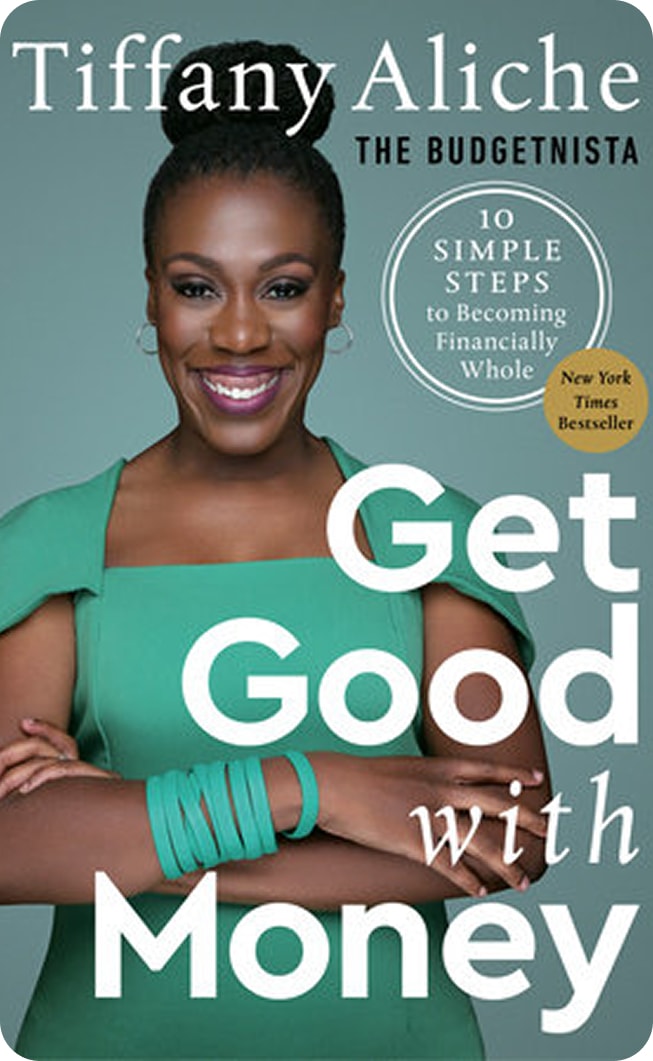
A 10-step plan to financial wholeness that covers the basics (budgeting, credit, savings) and the bigger picture (retirement, estate planning), serving as a comprehensive guide to financial management. Tiffany Aliche is all about meeting you where you are, not where you should be. She uses plain language, shares real-life examples, and breaks down overwhelming concepts into manageable actions for creating a plan for financial wholeness. If your goal is to feel empowered and organized with your money, this is your starting point, helping you determine your financial priorities and next steps.
2. The Psychology of Money by Morgan Housel
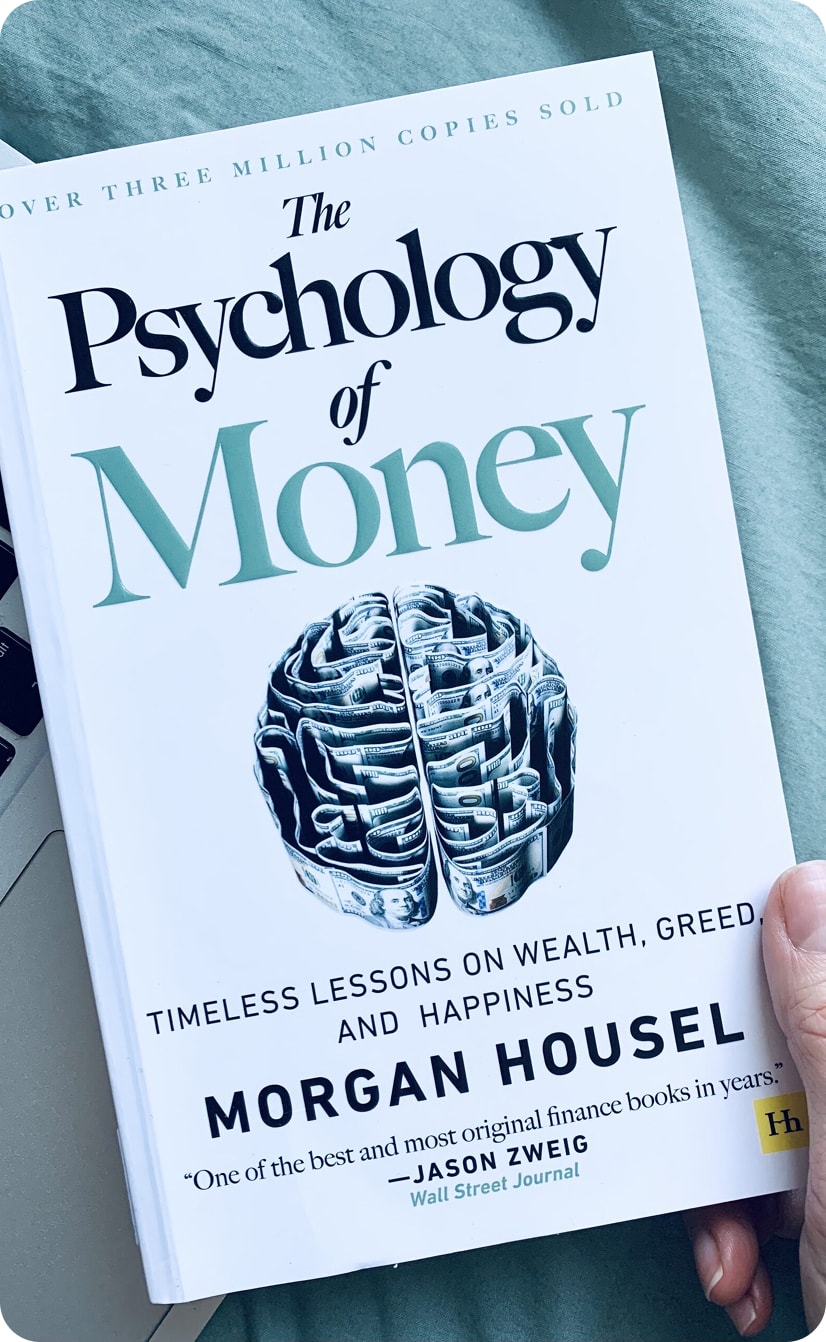
This one isn’t about spreadsheets and interest rates—it’s an interesting exploration of financial psychology and behavior. Housel makes the case that the way we think about money matters more than how much we know about it. He mixes storytelling and science to explain why smart people often make dumb money decisions, showing how emotions and experiences shape our financial lives. It’s a mindset shift more than a manual, and it might just change the way you make choices, big and small.
3. I Will Teach You to Be Rich by Ramit Sethi
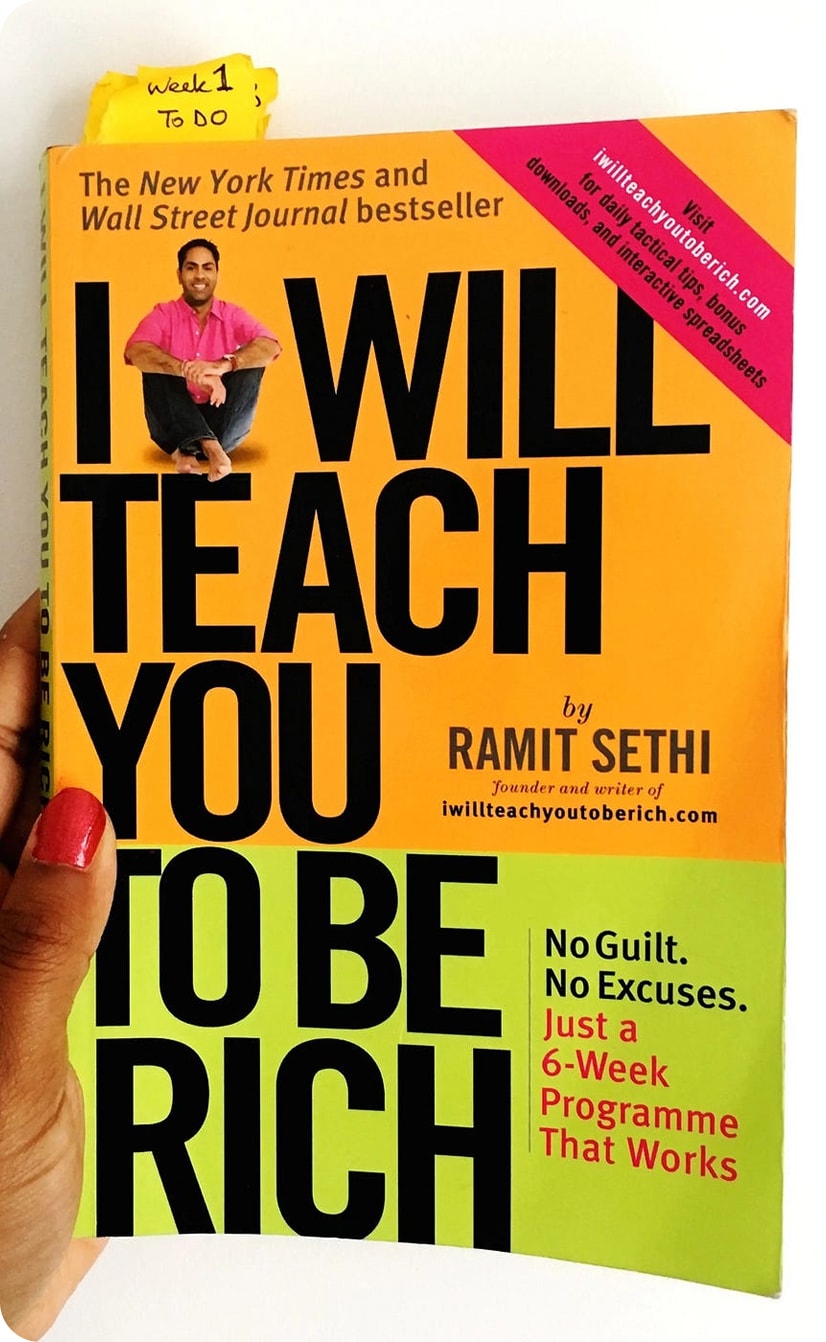
A six-week crash course in building a rich life (whatever that means to you). It covers everything from choosing the right credit card to investing without losing sleep, as well as banking services and automating your finances. This book is a valuable resource for improving your financial literacy, giving you the knowledge and tools to make informed money decisions. Ramit’s tone is casual, real, and not afraid to say what a lot of finance bros won’t, helping readers decide on their financial priorities. He’s big on spending intentionally—if something matters to you, spend on it guilt-free—as long as your essentials and investments are taken care of, and you stay focused on what matters most to you.
4. Finance for the People by Paco de Leon

Accessible, inclusive, and refreshingly non-judgmental, this book is ideal for anyone interested in learning about financial management in a way that feels welcoming and supportive. Paco de Leon breaks down personal finance with humor and empathy, especially for those who haven’t always seen themselves reflected in the world of money advice. The author does a great job explaining complex financial concepts in an accessible way, using quirky illustrations and relatable metaphors that make topics like debt, saving, and budgeting feel a little less scary. It’s perfect if you’ve ever felt out of place in the finance aisle of a bookstore.
This book is also recommended reading for those new to financial management.
5. The Total Money Makeover by Dave Ramsey
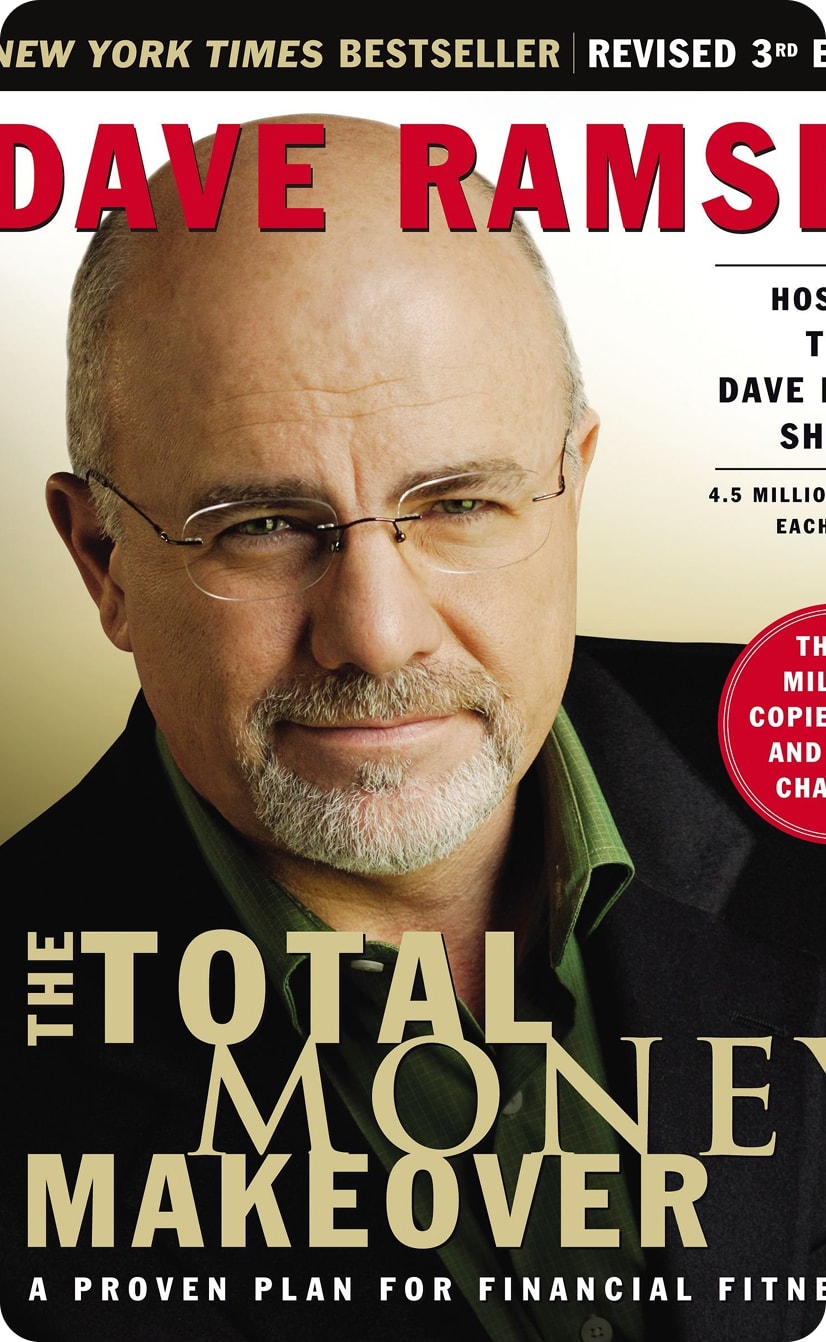
If you want a super structured plan and a little tough love, this one’s for you. Ramsey’s “baby steps” have helped millions pay off debt by making consistent paid contributions and build a more secure financial future. The book also provides a solid foundation for financial planning, guiding readers through the process of organizing their finances step by step. He’s got strong opinions (like no credit cards, ever), but if you’re looking for a detailed roadmap to dig out of debt—and want to avoid making mistakes that could cause you to lose money—you might appreciate his no-nonsense vibe. This book works especially well if you thrive on rules and structure, and it’s a great way to start building your financial foundation.
6. Rich Dad Poor Dad by Robert Kiyosaki

A classic for a reason. Kiyosaki contrasts two perspectives on money—his real dad and his mentor—to highlight the mindset shifts that build long-term wealth. It challenges the idea that a steady job is the safest route and instead promotes financial education, investing in assets, entrepreneurship, and explores business models to help readers understand how a company operates and grows.
The book also offers insights into wealth management strategies, showing readers how to grow and protect their assets over time.
The book also underscores the importance of capital in financing growth, acquisitions, and strategic planning, particularly relevant in private equity or investment contexts. If you’re looking for a book to change how you think about money, this one emphasizes the importance to invest in assets. You can gain valuable wealth-building strategies and financial knowledge from this book.
7. Broke Millennial Takes On Investing by Erin Lowry
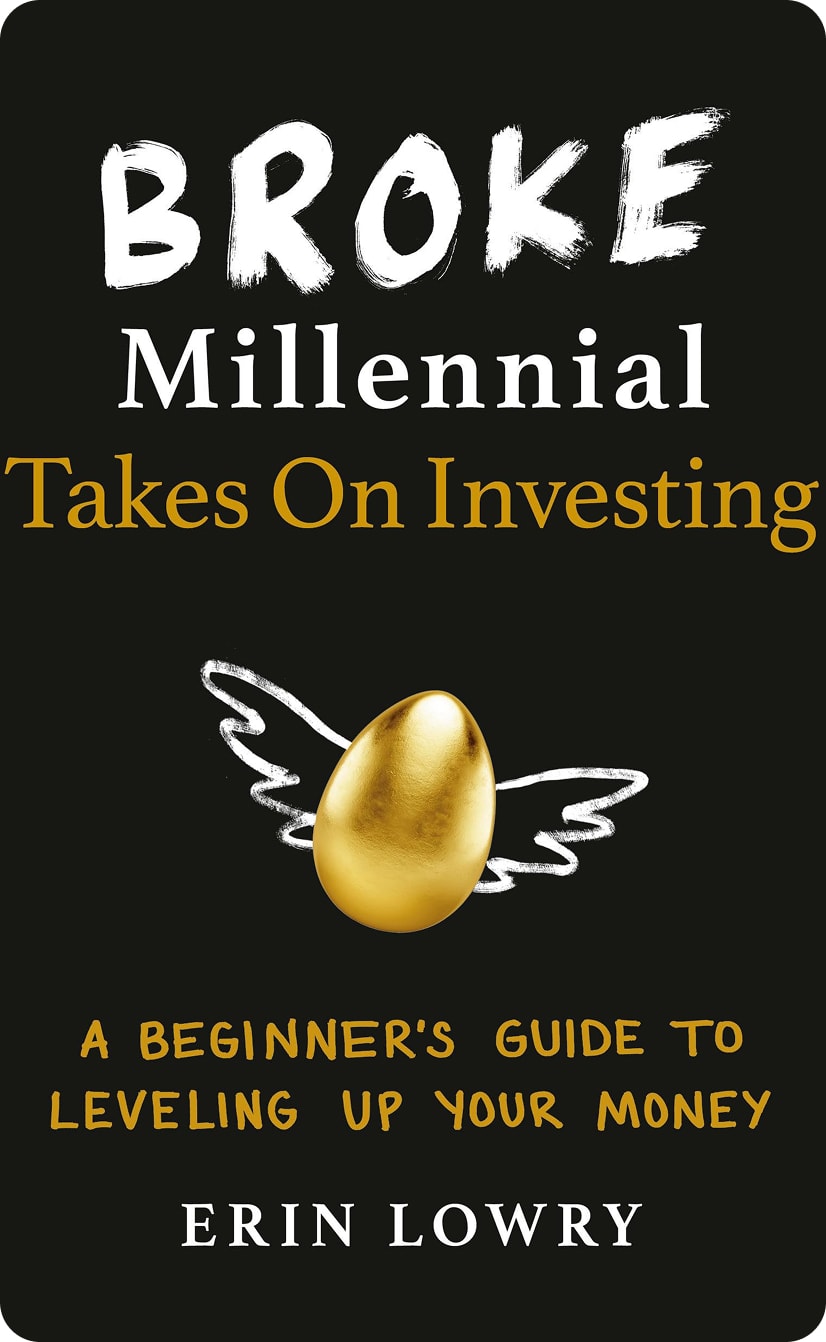
Not sure where to start with investing? This book is for you. Erin Lowry makes it easy for new investors to understand stocks, bonds, and individual retirement accounts, explaining that an individual retirement account is a self-directed, tax-deferred account not sponsored by an employer. She highlights its versatility as a retirement savings vehicle that can be used alongside employer-sponsored plans like 401(k)s and 403(b)s. It’s super conversational and full of examples that make sense if you’re renting, paying off loans, or trying to save up for the future—while also emphasizing the importance of thinking in terms of decades when investing. It’s like getting advice from a smart, financially-savvy friend who remembers what it was like to be clueless, and who helps you understand the difference between various investment options.
This is considered one of the most approachable investment books for new investors.
8. The Simple Path to Wealth by JL Collins
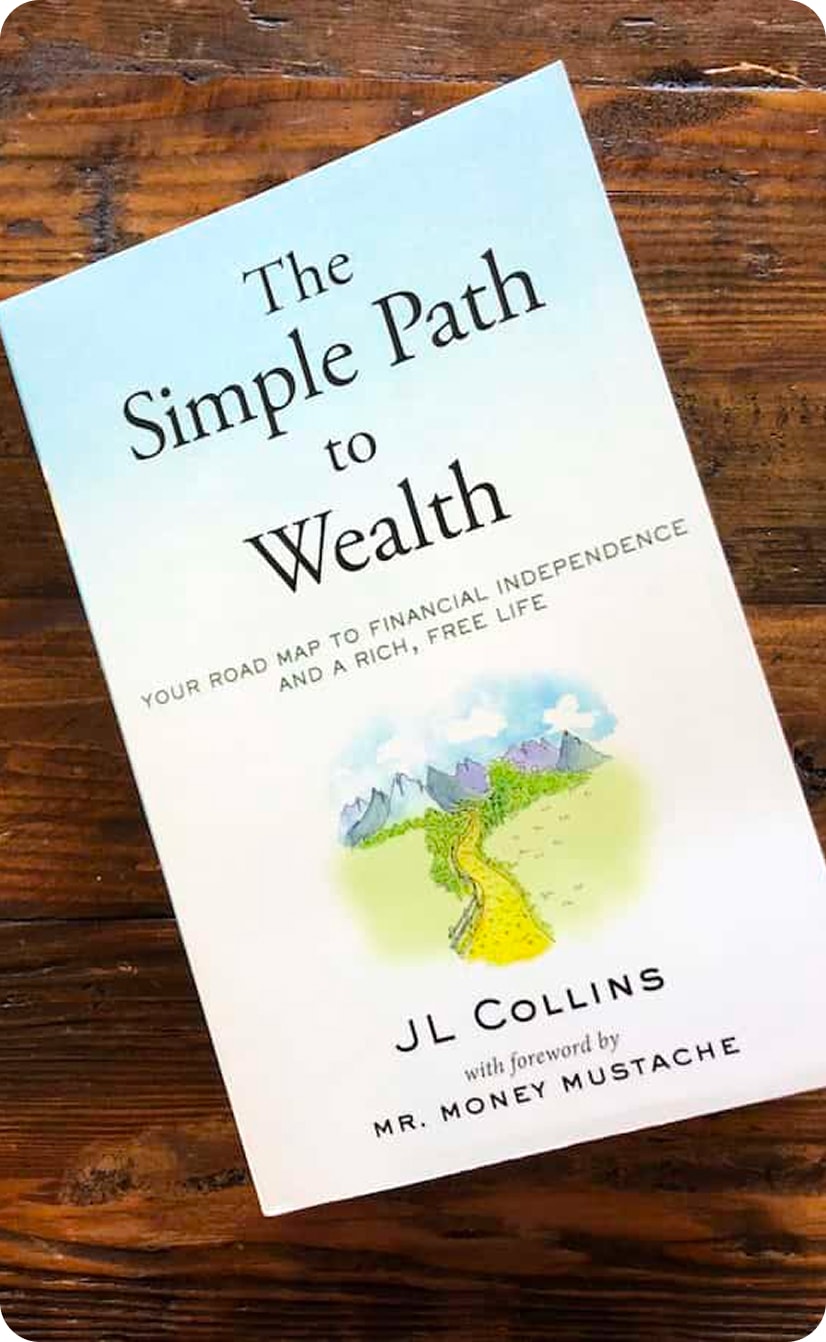
Written like a letter from a financially savvy friend, this book encourages you to start building your wealth with its minimalist approach to wealth-building. Think low-fee index funds and chill, long-term investing. JL Collins emphasizes that you don’t need to beat the stock market to build wealth—you just need to participate consistently, keep your costs low, and follow the keys to successful wealth-building outlined in the book. It’s a solid choice if you’re into the idea of “set it and forget it.”
By following the strategies in this book, readers can take important steps toward achieving financial independence.
9. Wealth Warrior by Linda Garcia
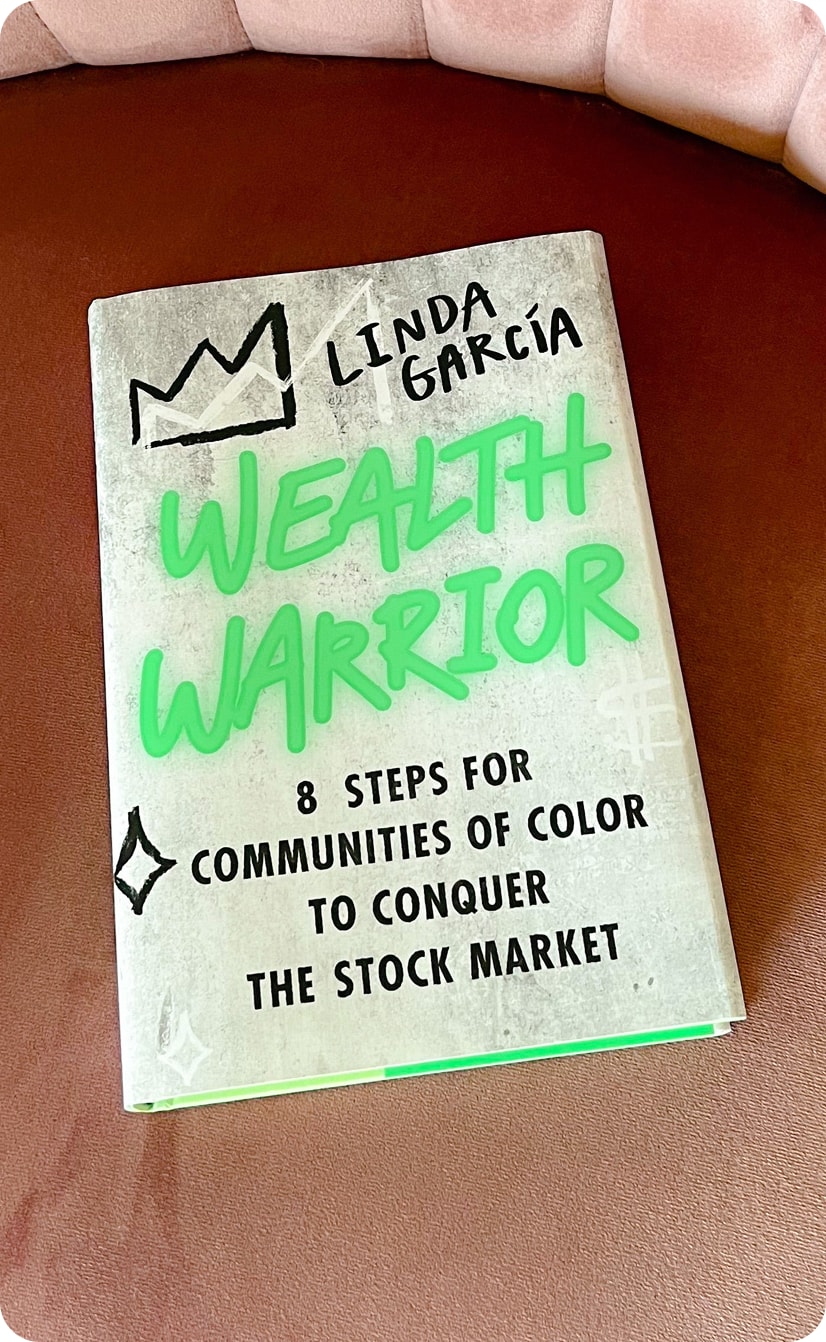
A must-read for anyone who’s felt excluded from traditional money spaces. Garcia helps readers understand and access the stock market with cultural insight and compassion, addressing how emotional experiences like grief, sorrow, and longing shape our financial lives. She covers the emotional and generational baggage that often comes with money and shows how to rewrite your own financial story. It’s both practical and deeply personal, helping readers recognize the value of financial advice and market participation. Additionally, the book highlights how an investor, such as a private equity investor, can influence the growth, valuation, and management of financial businesses, leading to significant strategic changes when such an investor becomes involved.
Given its unique perspective and actionable insights, this book deserves a spot on any financial reading list.
10. Atomic Habits by James Clear
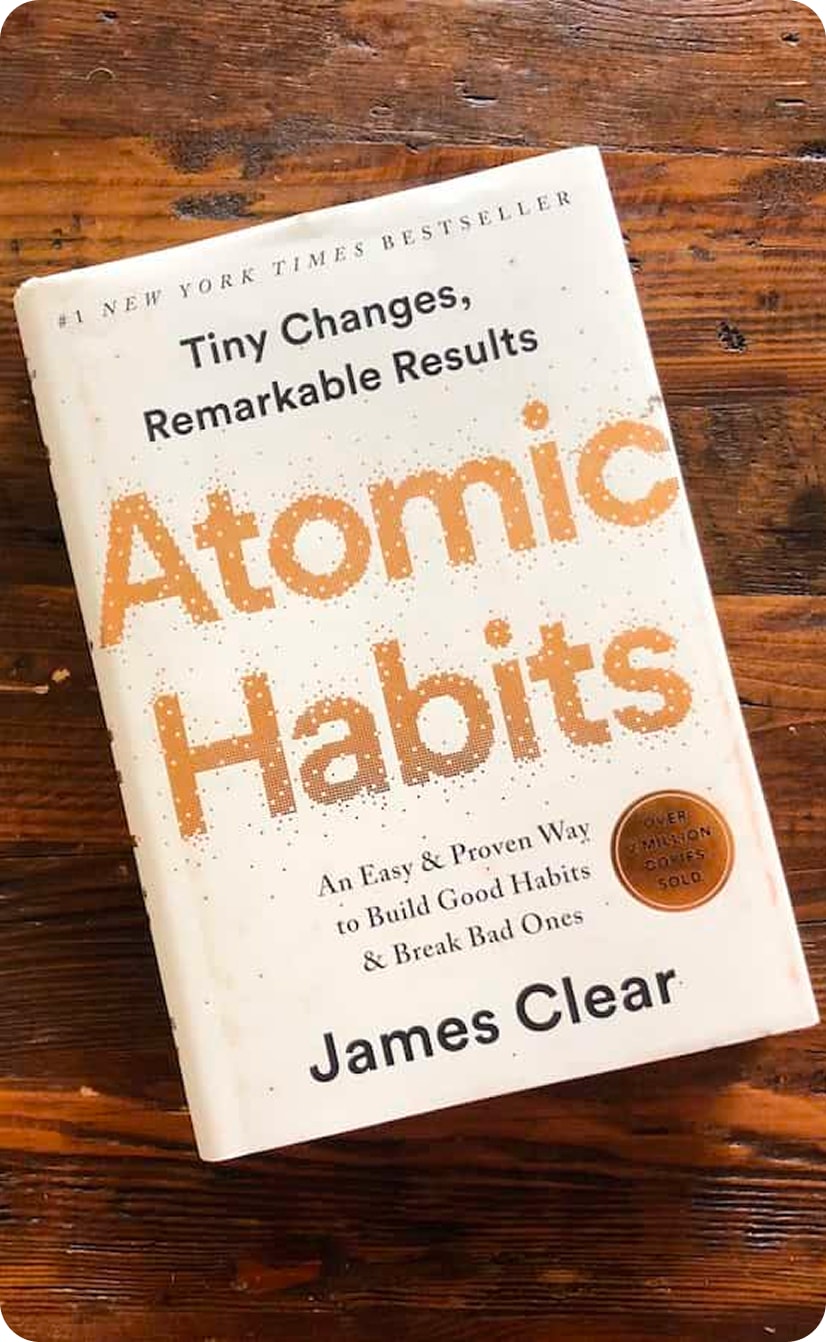
Not technically a finance book, but stay with us. Clear’s strategies for building better habits can help you with creating new financial habits that change the small money behaviors that add up to big wins. Want to finally stick to a budget, save consistently, or check your savings account without anxiety? This book can help you create those routines without burning out or feeling like a failure after one slip-up, by applying the principles of habit formation to your personal finance journey.
Building Your Financial Safety Net: Emergency Funds & Protection
When it comes to money management, one of the smartest moves you can make is building a solid financial safety net. Life is full of surprises—job changes, medical bills, car repairs—and having an emergency fund in place means you’re ready for whatever comes your way. Think of your emergency fund as your financial cushion: it should live in a savings account that’s easy to access, and ideally cover three to six months of your living expenses. This way, if you face unexpected life events, you won’t have to dip into your investments or rack up debt just to get by.
But your safety net doesn’t stop there. Managing debt is another key part of financial management. That means making more than the minimum payments on your credit cards and loans whenever possible, so you pay less in interest over the long run and free up more income for your financial goals. Creating a budget that tracks your monthly payments and expenses helps you stay focused and avoid overspending, making sure you’re always moving toward your goals—whether that’s saving for retirement, building an investment portfolio, or just feeling more in control of your money.
If you’re interested in investing, start by understanding the basics of how the stock market works and the different types of investments available. Individual retirement accounts (IRAs) and other tax-advantaged accounts are great tools for growing your savings and reducing your taxable income. Remember, investing always comes with risks, and it’s possible to lose money, but a well-diversified portfolio and a long-term strategy can help you manage those risks and achieve success over time.
Financial psychology plays a big role in all of this. Our emotions and habits can influence the way we save, spend, and invest. By being mindful of your financial decisions and understanding your own money triggers, you can create better habits and stay focused on what matters most. Having an emergency fund in place can also give you the confidence to make smart choices, knowing you have a backup if things don’t go as planned.
When it comes to managing debt, strategies like the debt avalanche (paying off high-interest debts first) or the debt snowball (tackling smaller balances for quick wins) can help you pay off what you owe faster and save on interest. And don’t forget about your credit: keeping your credit utilization low and making timely payments are key things for maintaining a healthy credit score, which can open doors to better rates and more financial opportunities in the future.
The bottom line? Building your financial safety net is all about creating a plan that protects you from the unexpected and sets you up for long-term success. Focus on the basics—saving, budgeting, managing debt, and investing wisely—and don’t hesitate to seek advice if you need it. With the right strategy and a commitment to your financial goals, you’ll be ready to handle whatever life throws your way and keep moving forward on your journey to financial freedom.
Finding Valuable Resources: Beyond the Books
While a great book can spark your financial journey, there’s a whole world of resources out there to help you keep learning and growing. For those new to personal finance, starting with finance books for beginners is highly recommended, as they provide a solid foundation before exploring other resources. From online articles and blogs to podcasts and financial planning websites, you can find up-to-date advice on everything from investing and retirement planning to money management and paying off debt. If you’re looking for more personalized guidance, financial advisors and planners can help you create a strategy tailored to your unique goals and situation.
When searching for resources, it’s important to focus on key things like credibility, expertise, and how relevant the information is to your own financial life. Not all advice is created equal, so take the time to understand the basics of personal finance—budgeting, saving, and investing—before diving into more complex topics. This foundation will help you make better financial decisions, manage risks, and maximize the benefits of your hard-earned money.
Building a well-managed financial portfolio isn’t just about growing your investments; it’s about creating sufficient income and security for the long run. Whether you’re saving for college, paying off debt, or planning for retirement, effective money management is the key to achieving your goals and enjoying your life. By seeking out trustworthy advice and focusing on the essentials, you can create a future that’s not only financially stable but also aligned with your values and dreams.
Staying Informed and Educated: Your Ongoing Financial Toolkit
Leveling up your finances isn’t a one-and-done deal—it’s an ongoing journey. The world of personal finance, investing, and money management is always evolving, and staying informed is one of the key things you can do to set yourself up for long-term success. Whether you’re just starting to build an emergency fund, managing debt, or looking to grow your investment portfolio, keeping your knowledge fresh will help you make smarter financial decisions. Prioritizing financial education is essential for achieving long-term financial success.
A great book can be a game-changer, but don’t stop there. Tap into online resources, podcasts, and even community workshops to keep learning about how money works, the basics of the stock market, and strategies for saving, investing, and paying taxes. While contributions to retirement accounts like 401(k)s, 403(b)s, and IRAs are often tax-deferred, you will ultimately need to pay taxes upon withdrawal. Understanding the benefits and risks of different investments, how interest and fees impact your returns, and how to create a budget that actually works for your life will help you achieve your financial goals—whether that’s saving for college, building sufficient income for retirement, or just feeling more confident about your day-to-day expenses.
Look for previously worked examples and real-life case studies to see how others have navigated challenges like managing debt or making big financial decisions. These stories can help you avoid common mistakes and inspire you to create a financial strategy that fits your values and future plans. Remember, the more you understand about personal finance, the better equipped you’ll be to handle life events and make choices that benefit you in the long run.
Homebody's Tips: Pitfalls to Watch Out For
Even with the best intentions, it’s easy to fall into some classic money traps. One of the biggest mistakes? Not having clear financial goals or a sense of your own values. Without a roadmap, it’s all too easy to make financial decisions that don’t serve you—like overspending, investing in things you don’t understand, or letting debt pile up.
Another common pitfall is only making minimum payments on credit cards or loans. This can stretch your debt out for more than a decade, costing you a fortune in interest and fees. Managing debt effectively means paying more than the minimum whenever possible and keeping an eye on the true cost of borrowing. When making financial decisions, always consider the price of college or the price of bonds, as understanding the monetary value and long-term impact is crucial. Don’t forget to take advantage of savings accounts and individual retirement accounts that offer tax benefits—missing out on these can mean losing money you could have saved for your future.
Financial psychology plays a huge role, too. Our habits and emotions can lead us to make choices that feel good in the moment but hurt our finances in the long run. That’s why it’s so important to focus on the basics: budgeting, understanding your expenses, and determining your risk tolerance before you start investing. Make sure you’re not paying unnecessary fees, and always weigh the cost and benefit of every financial move.
By staying aware of these pitfalls and using smart strategies, you can create a solid foundation for your financial life. Whether you’re paying off debt, saving for retirement, or just trying to manage your monthly payments, understanding the risks and benefits of each decision will help you achieve success and build a future you feel good about.
To further avoid these common financial pitfalls, consider reading finance books for young adults, which offer practical advice and guidance tailored to those just starting out.
What to Do After You Finish the Last Chapter
No matter where you’re starting from, one of these financial books 2025 can help you take the next step. You don’t need a finance degree or a six-figure salary to start making smart money moves—just a little knowledge and a good place to start. These are among the best books on finance for 2025, offering valuable insights for readers at any stage. And remember: reading one of these books isn’t the finish line, it’s the first step. Even one idea, habit, or perspective shift can be a game changer. So grab a highlighter, pour yourself something cozy, and let 2025 be the year you feel confident with your money. Happy reading!
What is the best financial book to start with in 2025?
If you're new to personal finance, Get Good with Money by Tiffany Aliche is a great starting point. It breaks down complex topics into actionable steps and helps you build a strong financial foundation.
Which financial book is best for young adults?
Broke Millennial Takes On Investing by Erin Lowry is written specifically for people in their 20s and 30s who want to learn how to invest without the jargon or judgment.
Are these books good for renters or people living paycheck to paycheck?
Yes! These books are especially helpful if you're trying to budget on a tight income, save for future goals, or get out of debt. They focus on practical, real-world advice you can actually use—no finance degree required.
I’ve read a few finance books already. Will these still be helpful?
Absolutely. This list covers a range of approaches—from mindset-focused reads like The Psychology of Money to strategy-driven guides like The Total Money Makeover—so there’s something here whether you’re starting fresh or leveling up.
Why is Atomic Habits included if it’s not a finance book?
Because good money habits are just that—habits. Atomic Habits is a masterclass in behavior change, and it's perfect for anyone trying to build smarter routines around spending, saving, and managing their money.